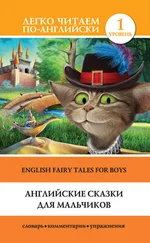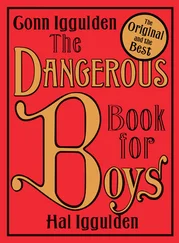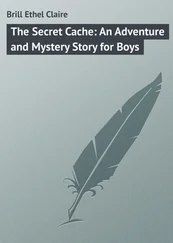Robert Robert - Scouting for Boys
Здесь есть возможность читать онлайн «Robert Robert - Scouting for Boys» весь текст электронной книги совершенно бесплатно (целиком полную версию без сокращений). В некоторых случаях можно слушать аудио, скачать через торрент в формате fb2 и присутствует краткое содержание. Жанр: Старинная литература, und. Описание произведения, (предисловие) а так же отзывы посетителей доступны на портале библиотеки ЛибКат.
- Название:Scouting for Boys
- Автор:
- Жанр:
- Год:неизвестен
- ISBN:нет данных
- Рейтинг книги:3 / 5. Голосов: 1
-
Избранное:Добавить в избранное
- Отзывы:
-
Ваша оценка:
- 60
- 1
- 2
- 3
- 4
- 5
Scouting for Boys: краткое содержание, описание и аннотация
Предлагаем к чтению аннотацию, описание, краткое содержание или предисловие (зависит от того, что написал сам автор книги «Scouting for Boys»). Если вы не нашли необходимую информацию о книге — напишите в комментариях, мы постараемся отыскать её.
Scouting for Boys — читать онлайн бесплатно полную книгу (весь текст) целиком
Ниже представлен текст книги, разбитый по страницам. Система сохранения места последней прочитанной страницы, позволяет с удобством читать онлайн бесплатно книгу «Scouting for Boys», без необходимости каждый раз заново искать на чём Вы остановились. Поставьте закладку, и сможете в любой момент перейти на страницу, на которой закончили чтение.
Интервал:
Закладка:
The Court of Honour decides programmes of work, camps, rewards and other questions affecting Troop management. The members of the Court are pledged to secrecy. Only those decisions which affect the whole Troop, that is, competitions, appointments, and so on, would be made public.
Patrol Names and Signs
Each Troop is named after the place to which it belongs. Each Patrol in the Troop is named after an animal. It is a good plan to choose only animals and birds found in your district. Thus the 33rd London Troop may have five Patrols which are respectively the “Curlews”, the “Bulldogs”, the “Owls”, the “Bats” and the “Cats.
Each Patrol Leader has a small flag on his staff with his Patrol animal shown on it on both sides.
Each Scout in a Patrol has his regular number. The Patrol Leader is No. 1, the Second No. 2. The other Scouts have the consecutive numbers after these. Scouts usually work in pairs as comrades, Nos. 3 and 4 together, Nos. 5 and 6 together, and Nos. 7 and 8.

This is the Patrol flag of the Wolf
Patrol of the 1st London Troop
Patrol Motto
Each Patrol chooses its own motto, which generally applies in some way to the Patrol animal. For instance, the Eagles could take as their guiding words “Soar High”, or the Beavers could say “Work Hard”, the Hounds “True till Death”, and so on.
Patrol Call
Each Scout in the Patrol has to be able to make the call of his Patrol animal—thus every Scout in the “Bulldogs” must be able to imitate the growl of the bulldog. This is the signal by which Scouts of a Patrol can communicate with each other when hiding or at night. No Scout is allowed
to use the call of any Patrol except his own. The Patrol Leader calls his Patrol at any time by sounding his whistle and giving the Patrol call.
[Five pages of patrol animals, signs, calls and colours omitted from this edition]
Woodcraft Trail Signs
Scout trail signs are made on the ground, close to the right-hand side of the road. They should never be made where they will damage or disfigure private property.

When a Scout makes signs on the ground for others to read he also draws the head of the Patrol animal. Thus if he wants to show that a certain road should not be followed he draws a Sign across it that means “Not to be followed”, and adds the head of his Patrol animal to show which
Patrol discovered that the road was no good, and his own number to show which Scout discovered it, thus:

At night sticks with a wisp of grass round them or stones should be laid on the road in similar forms so that they can be felt with the hand.
PATROL PRACTICES
Each Scout should learn the call of his Patrol animal. He should be encouraged to know all he can about its habits, etc. This can be a first step in nature lore.
Each Scout should know how to make a simple drawing of his Patrol animal. The Scouts should use this as their Patrol signature.
The special Scout signs should be used out-of-doors. They can be made in the dust, or by using sticks, and so on. A good tracking game can be arranged by using signs only.
Acting in all forms should be encouraged: Mock trials and impromptu plays are excellent training and useful for evenings around the camp fire or when you have to be indoors.
GAMES
Scout Meets Scout
Single Scouts, or pairs of Scouts or complete Patrols, are taken out about two miles apart. They are then made to move towards each other, either alongside a road, or by giving each side a landmark to move toward, such as a steep hill or big tree which is directly behind the other party and will thus ensure their coming together. The Patrol which first sees the other wins. This is signified by the Patrol Leader holding up his Patrol flag for the umpire to see, and sounding his whistle. A Patrol need not keep together, but that Patrol wins which first holds up its flag; so it is well for the Scouts to keep in touch with their Patrol Leaders by signal, voice, or message.
Scouts may employ any ruse they like, such as climbing into trees, hiding in carts, etc., but they must not dress up in disguise unless specially permitted.
This game may also be practised at night.
Debates
A good exercise for a winter’s evening in the meeting room is to hold a debate on any subject of topical interest, with the Scoutmaster acting as chairman. He will see that there is a speaker prepared beforehand to introduce and support one view of the subject, and another speaker
prepared to expound another view. After hearing them, he will call on the others present in turn
to express their views. In the end he takes the votes for and against the motion.
At first boys will be very shy of speaking unless the subject selected by the Scoutmaster is one which really interests them and takes them out of themselves.
After a debate or two they get greater confidence, and are able to express themselves coherently. They also pick up the proper procedure for public meetings, such as seconding a motion, moving amendments, obeying chairman’s ruling, voting, according votes of thanks to chair, etc.
Mock Trial
In place of a debate a mock trial may be of interest as a change.
For instance, the story of the Elsdon Murder given in Yarn No. 2 might form the subject of a trial.
The Scoutmaster acts as judge, and details boys to the following parts:
Prisoner . . . William Winter.
Witness . . . Boy, Robert Hindmarsh.
Witness . . . Police Constable.
Witness . . . Villager.
Witness . . . Old woman (friend of the murdered woman).
Counsel for Prisoner.
Counsel for Prosecution.
Foreman and Jury (if there are enough Scouts).
Follow as nearly as possible the procedure of a court of law. Let each make up his own evidence, speeches, or cross-examination according to his own notions and imagination, along the lines of the story, but in greater detail. Do not necessarily find the prisoner guilty unless the prosecution proves its case to the jury.
In summing up, the Scoutmaster may bring out the fact that the boy, Hindmarsh, carried out each part of the duty of a Scout, in order to bring home the lesson to the boys.
Unprepared Plays
The plot of a short, simple play is given, and each player is assigned his part, with an outline of what he has to do and say. The Scouts act is, making up the required conversation as they go along.
This develops the power of imagination and expression.
Play acting is good fun. It doesn’t matter what kind of voice you have so long as you get out your words clearly and distinctly.
HINTS TO INSTRUCTORS
In all games and competitions it should be arranged, as far as possible, that all the scouts should take part, because we do not want to have merely one or two brilliant performers and the others no use at all. All ought to get practice, and all ought to be pretty good. In competitions where there are enough entries to make heats, ties should be run off by losers instead of the usual system of by winners, and the game should be to find out which are the worst instead of which are the best. Good men will strive just as hard not to be worst as they would to gain a prize, and this form of competition gives the bad man most practice.
Читать дальшеИнтервал:
Закладка:
Похожие книги на «Scouting for Boys»
Представляем Вашему вниманию похожие книги на «Scouting for Boys» списком для выбора. Мы отобрали схожую по названию и смыслу литературу в надежде предоставить читателям больше вариантов отыскать новые, интересные, ещё непрочитанные произведения.
Обсуждение, отзывы о книге «Scouting for Boys» и просто собственные мнения читателей. Оставьте ваши комментарии, напишите, что Вы думаете о произведении, его смысле или главных героях. Укажите что конкретно понравилось, а что нет, и почему Вы так считаете.

![Роберт Баден-Пауэлл - Искусство скаута-разведчика[Scouting for boys ; Искусство Разведки для мальчиков]](/books/70572/robert-baden-pauell-iskusstvo-skauta-thumb.webp)









